
Can you be bold to love the world? Can you put your love for the world first? When you do, when it’s the real thing, you discover that “you” is not really “I,” it is “we.” Such a fundamental identity shift is disruptive and liberating.
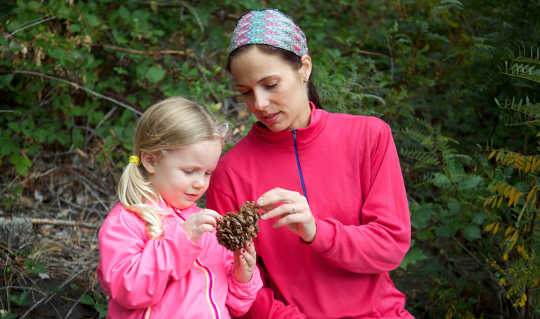 Parents may be uncomfortable initiating “the sex talk,” but whether they want to or not, parents teach their kids about sex and sexuality. Kids learn early what a sexual relationship looks like.
Parents may be uncomfortable initiating “the sex talk,” but whether they want to or not, parents teach their kids about sex and sexuality. Kids learn early what a sexual relationship looks like.
 I saw two very different shows at the Edinburgh Fringe last week, two shows that dealt with the subject of how men and women talk about each other, in very different formats and with very different levels of success.
I saw two very different shows at the Edinburgh Fringe last week, two shows that dealt with the subject of how men and women talk about each other, in very different formats and with very different levels of success.

From the first day of our trip, we were met by the whales. Although I had been in deep communication with the whales and had received instructions for the structure and practices for the trip in the year prior our journey, I was still blown away by the magnitude of what we experienced.
 While we often hear about the negative impact social media has on children, the use of sites like Facebook, Twitter and Instagram is not a one-size-fits-all activity.
While we often hear about the negative impact social media has on children, the use of sites like Facebook, Twitter and Instagram is not a one-size-fits-all activity.
 Fraud investigators have warned that people are being targeted by scammers who persuade them to invest their pensions in self-storage units.
Fraud investigators have warned that people are being targeted by scammers who persuade them to invest their pensions in self-storage units.
 In Sir Thomas Malory’s ‘Le Morte d'Arthur,’ a character complains that young people are too sexually promiscuous. 14th- and 15th-century texts hold a lesson for the 21st century. Anxieties about “kids these days” are misguided, not because nothing changes, but because historical change cannot be predicted.
In Sir Thomas Malory’s ‘Le Morte d'Arthur,’ a character complains that young people are too sexually promiscuous. 14th- and 15th-century texts hold a lesson for the 21st century. Anxieties about “kids these days” are misguided, not because nothing changes, but because historical change cannot be predicted.
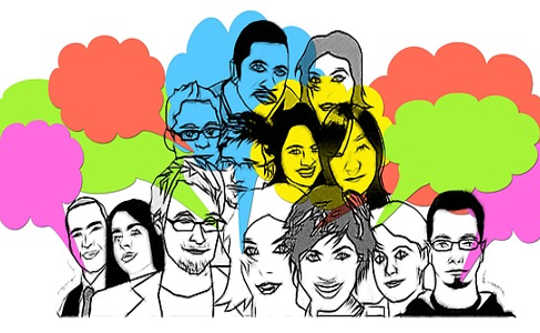 What does it take to communicate honestly with other people? First of all, it takes knowing your own mind. But when it comes to communicating honestly with others, knowing yourself isn’t enough. Communicating with others is a skill – but not necessarily a skill we’re born with!
What does it take to communicate honestly with other people? First of all, it takes knowing your own mind. But when it comes to communicating honestly with others, knowing yourself isn’t enough. Communicating with others is a skill – but not necessarily a skill we’re born with!
- By Leah Guy
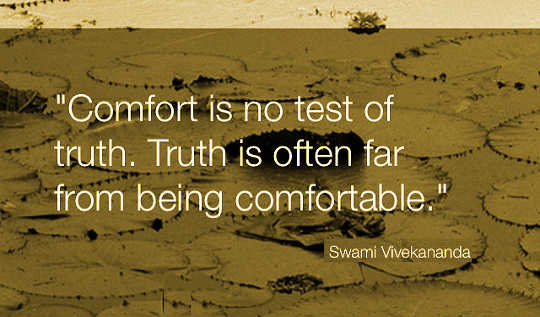 Part of self-expression is claiming your originality. You are unique and special and you should tell the world who you are! One of the good ways social media has helped our culture is to encourage originality.
Part of self-expression is claiming your originality. You are unique and special and you should tell the world who you are! One of the good ways social media has helped our culture is to encourage originality.
 Sometimes it's obvious what emotion a person is dealing with. Other times it's not. With just a little practice, you'll be able to recognize the emotions underlying other people's demeanor, words, and actions. And rather than getting sucked into a knee-jerk reaction to their abrupt tone, negativity, or finger-pointing tirade, you can get to the heart of the matter and extend a communication "bridge."
Sometimes it's obvious what emotion a person is dealing with. Other times it's not. With just a little practice, you'll be able to recognize the emotions underlying other people's demeanor, words, and actions. And rather than getting sucked into a knee-jerk reaction to their abrupt tone, negativity, or finger-pointing tirade, you can get to the heart of the matter and extend a communication "bridge."
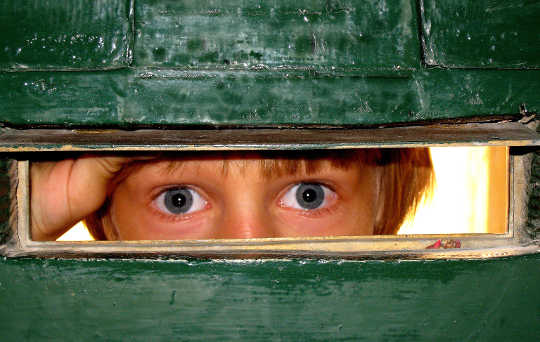 Why are our eyes so expressive? It started as a universal reaction to environmental stimuli, new research suggests, and evolved to communicate emotion.
Why are our eyes so expressive? It started as a universal reaction to environmental stimuli, new research suggests, and evolved to communicate emotion.
 In the 1990s, many of the equestrians I encountered believed that animals were incapable of thought and emotion. “It’s all instinct,” one of my trainers told me whenever I brought up anecdotal evidence to the contrary. Some of the local ranchers insisted that, unlike dogs, horses weren’t smart enough to recognize their own names.
In the 1990s, many of the equestrians I encountered believed that animals were incapable of thought and emotion. “It’s all instinct,” one of my trainers told me whenever I brought up anecdotal evidence to the contrary. Some of the local ranchers insisted that, unlike dogs, horses weren’t smart enough to recognize their own names.
 All animals have a culture and a language associated with that culture. Whether the language contains words or some other vocalization, all of these cultures will include body language. For example, horses are limited in vocabulary to a series of soft snickerings...
All animals have a culture and a language associated with that culture. Whether the language contains words or some other vocalization, all of these cultures will include body language. For example, horses are limited in vocabulary to a series of soft snickerings...
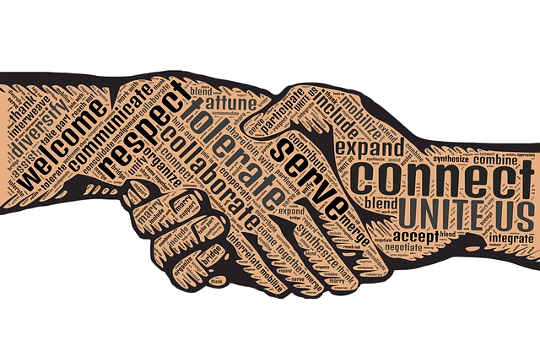 To get someone’s support, you need more than just facts. The most effective method is aligning communication about your cause with the most deeply-held values and aspirations of your friends, relatives, neighbors, and fellow citizens.
To get someone’s support, you need more than just facts. The most effective method is aligning communication about your cause with the most deeply-held values and aspirations of your friends, relatives, neighbors, and fellow citizens.
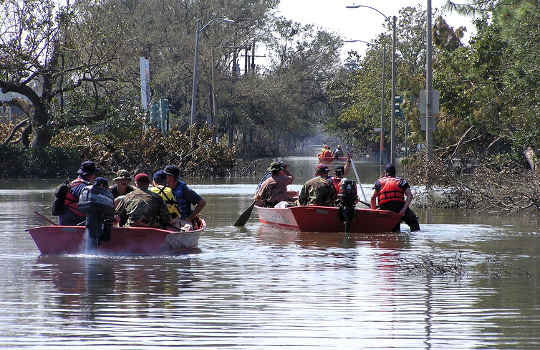 Standard advice about preparing for disasters focuses on building shelters and stockpiling things like food, water and batteries. But resilience - the ability to recover from shocks, including natural disasters - comes from our connections to others.
Standard advice about preparing for disasters focuses on building shelters and stockpiling things like food, water and batteries. But resilience - the ability to recover from shocks, including natural disasters - comes from our connections to others.
- By David Kundtz
 Many studies have shown that women's brains are wired differently from men's so they can both feel and recall both positive and negative emotions more strongly than men. But, just because women seem to be more comfortable in the emotional realm, does not mean that men don't, can't, or shouldn't thrive in it...
Many studies have shown that women's brains are wired differently from men's so they can both feel and recall both positive and negative emotions more strongly than men. But, just because women seem to be more comfortable in the emotional realm, does not mean that men don't, can't, or shouldn't thrive in it...
 Most of us dread dealing with them, but call centres are hard to avoid as an increasingly ubiquitous aspect of modern life.
Most of us dread dealing with them, but call centres are hard to avoid as an increasingly ubiquitous aspect of modern life.
 Politicians and policymakers are discussing what parts of the Affordable Care Act to change and what to keep. While most of us have little control over those discussions, there is one health care topic that we can control: what we talk about with our doctor.
Politicians and policymakers are discussing what parts of the Affordable Care Act to change and what to keep. While most of us have little control over those discussions, there is one health care topic that we can control: what we talk about with our doctor.
 We can start difficult conversations by speaking from the heart and sharing our wish for a world where everyone is safe and free.
We can start difficult conversations by speaking from the heart and sharing our wish for a world where everyone is safe and free.
 The use of obscene or taboo language, or swearing as it’s more commonly known, is often seen as a sign that the speaker lacks vocabulary, cannot express themselves in a less offensive way, or even lacks intelligence.
The use of obscene or taboo language, or swearing as it’s more commonly known, is often seen as a sign that the speaker lacks vocabulary, cannot express themselves in a less offensive way, or even lacks intelligence.
 Centuries ago, hearing voices in one’s head was thought to be a sign of communication with God – and if not that, then with the devil.
Centuries ago, hearing voices in one’s head was thought to be a sign of communication with God – and if not that, then with the devil.
 Doctors don’t just “get over” rude treatment from patients, research suggests. In simulations with an angry parent, the performance of pediatricians suffered dramatically.
Doctors don’t just “get over” rude treatment from patients, research suggests. In simulations with an angry parent, the performance of pediatricians suffered dramatically.
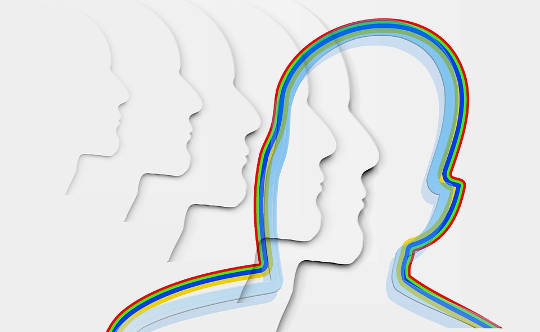 There is a natural tendency to synchronize, to link up with others. When two violins are located in the same room and a string is plucked on the first one, the string tuned to the same frequency on the second violin will vibrate, thus sounding the note...
There is a natural tendency to synchronize, to link up with others. When two violins are located in the same room and a string is plucked on the first one, the string tuned to the same frequency on the second violin will vibrate, thus sounding the note...















